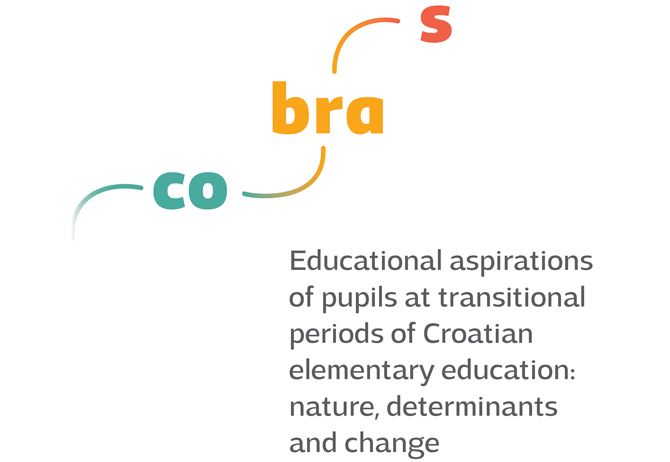Competitive research projects
Educational aspirations of pupils at transitional periods of Croatian elementary education: nature, determinants and change
About project
Project basics
- Acronym: COBRAS
- Project beneficiary: The Institute for Social Research in Zagreb
- Financed by: Croatian Science Foundation
- Project duration: February 2016 – December 2021
- Facebook: https://www.facebook.com/cobras.hr/?ref=aymt_homepage_panel
- Twitter: https://twitter.com/Cobras_Hr
Project description
The project aims to examine the nature, determinants and change in pupils’ educational aspirations at three transitional periods of Croatian elementary education. Pupils’ educational aspirations are among the strongest determinants of young persons’ educational and more general life choices and outcomes. Pupils with higher educational aspirations have greater motivation and higher educational attainment, as do those for whom parents and teachers hold higher educational expectations and aspirations (Gorrard, See & Davies, 2012; Gutman & Akerman, 2008). The importance of educational aspirations also extends beyond the field of education, with research indicating that they are also related to the formation of individual identity, personal well-being and a reduced risk for social exclusion (Bynner, 2000; Kintrea, StClair & Houston, 2011; Sparkes, 1999).
In this project, educational aspirations are broadly defined as the ambitions and goals pupils hold with regards to both immediate and future educational experiences and outcomes. Within the conceptual framework, educational aspirations are placed at the centre of an ecological system extending from the most proximal level of the individual pupil, through the level of parents to the more distant levels of class (peers) and school. For each level, a number of psychological concepts are selected in order to investigate the nature and determinants of pupils’ aspirations.
The research focuses on the aspirations of pupils from three different cohorts at three transitional periods of elementary education: the introduction to elementary education (1st to 2nd grade), the transition from class to subject teaching (4th to 5th grade) and the completion of elementary education prior to the transition to secondary education (7th to 8th grade). The qualitative research phase centres on an in-depth exploration of educational aspirations through a series of semi-structured interviews with participant triads made up of a pupil, his/her parent and teacher. In this research phase, 120 triads from 5 participating schools will be followed over two academic years. The quantitative phase consists of the repeated administration of a pupil questionnaire aimed at examining the determinants of and change in pupils’ educational aspirations. The questionnaire will be administered in 20 randomly selected schools in Zagreb. In each school, all 4th and 7th grade pupils will be invited to participate at three different time-points over two academic years.
The results from both research phases will be integrated through a concurrent examination of individual perspectives over time and the use of statistical modelling of the data from the large samples. By considering multiple views and voices, the research aims to achieve a more complete understanding of the interactions between pupils, parents and teachers that influence pupils’ educational aspirations, as well as to develop practical recommendations for fostering the development of pupils’ educational aspirations.
Logo

